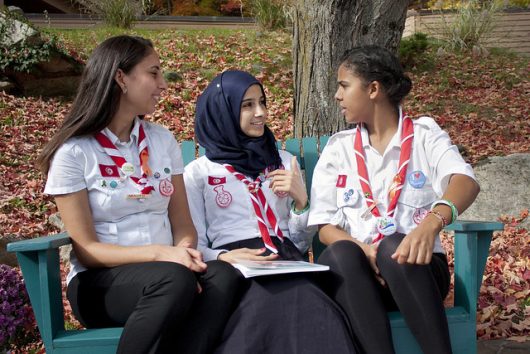How to Help People in Tunisia
 In December of 2010, a 26-year-old Tunisian man who struggled with poverty committed self-immolation in protest of police and government actions. This incident marked the starting point of the “Arab Spring,” during which various North Africa and Middle East countries reached democratic regimes.
In December of 2010, a 26-year-old Tunisian man who struggled with poverty committed self-immolation in protest of police and government actions. This incident marked the starting point of the “Arab Spring,” during which various North Africa and Middle East countries reached democratic regimes.
However, after 5 years of revolution, Tunisia still faces distinct difficulties. Corruption, unemployment and violence against women are the most severe issues. Even though there have been advances to solve these complications, the following organizations help people in Tunisia developing several programs.
Transparency International
Corruption was one of the main problems that citizens attempted to solve in Arab Spring. Ironically, it is the principal concern that Tunisians have now. According to a study made by Transparency International, 61 percent of the people in the country believe that the level of corruption has increased in the last 12 months. Additionally, 30 percent of the people surveyed fear retaliation if they speak out about corruption.
Transparency International brings some strategies to attack this issue and help people in Tunisia. One of them is finishing with the impunity, which means that those public officials that break the law must be punished in order to end the corruption cycle. Empowering the citizens to monitor politicians and promote transparency allows citizens to know where taxes, credits or international aid are used in the public interest is another strategy.
Unfortunately, 15 percent of the Tunisians live in unemployment, an indicator that triggers poverty. In addition, some areas are more vulnerable than others: the most affected zone is the central area of the country, where poverty reaches 30 percent in some regions.
International Labor Organization
Unemployment gets worse in youth, since 33 percent of young Tunisian men and women between 15 and 29 suffers this problem. To help people in Tunisia, the International Labor Organization (ILO) works to transform this situation.
It has created local economic development by giving young people pilot projects. One such project is the construction of a marketplace that will give merchants a better place to sell their wares. In addition, it has helped local people to develop new and useful skills; for instance, about 100 Tunisians have been trained in agriculture, knowledge that will permit them growing, harvesting and selling products.
U.N. Women
In other areas, Tunisia is moving forward. In 2010 for instance, U.N. Women reported that nearly 50 percent of Tunisian women had experienced violence in their lifetime. However, last July, the Tunisian Congress passed the first national law to combat violence against women. This law primarily ensures the survivors access to essential services, such as legal and psychological assistance.
Mobile applications also prevent violence against women. With Eyewatch, for example, in just one click the app informs people what is happening at the moment. This technology was used by women in Dharavi, a locality in Mumbai, India. The application has helped women to track cases of violence, the Guardian reported.
How to help people in Tunisia has become an important question that organizations are addressing. Donating to these organizations and calling your legislators to support bills that help nations like Tunisia are surefire ways to help truly make a difference.
– Dario Ledesma
Photo: Flickr
